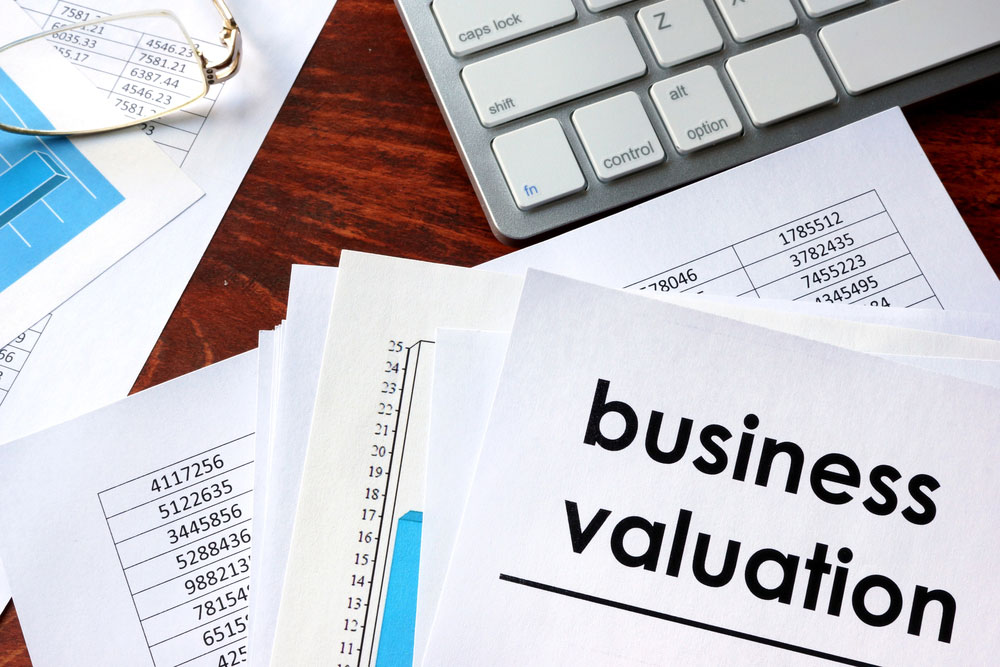In today’s dynamic business landscape, understanding the true value of a company is essential for informed decision-making, strategic planning, and financial success. As trusted advisors, Certified Public Accountant (CPA) firms play a vital role in providing comprehensive financial services to businesses of all sizes. Among these services, business valuation stands out as a critical offering, enabling businesses to assess their worth accurately and unlock opportunities for growth, investment, and transition. In this comprehensive exploration, we delve into the significance of business valuation services within CPA firms, highlighting their value proposition, methodologies, and impact on stakeholders.

The Importance of Business Valuation:
Business valuation is the process of determining the economic value of a business entity or its assets. This valuation serves various purposes, including mergers and acquisitions, financial reporting, tax compliance, litigation support, estate planning, and shareholder transactions. For businesses, understanding their value is crucial for attracting investors, securing financing, negotiating partnerships, and making strategic decisions about growth, expansion, or exit strategies. Additionally, accurate valuations provide stakeholders with confidence in the financial health and viability of the business, fostering transparency and trust in relationships with investors, lenders, and regulatory authorities.
The Role of CPA Firms in Business Valuation:
As trusted advisors with deep expertise in financial matters, CPA firms are uniquely positioned to offer business valuation services to their clients. Leveraging their knowledge of accounting principles, financial analysis, and regulatory compliance, CPAs provide objective, unbiased assessments of a company’s value, tailored to the specific needs and objectives of the client. From small businesses seeking to determine their worth for succession planning to large corporations undergoing mergers or acquisitions, CPA firms offer comprehensive valuation solutions that align with industry standards, best practices, and regulatory requirements.
Key Methodologies and Approaches:
CPA firms employ a variety of methodologies and approaches to conduct business valuations, each tailored to the unique characteristics of the company and the context of the engagement. Common valuation methods include:
Income Approach: This approach focuses on the future earning potential of the business, estimating its value based on projected cash flows, discounted at an appropriate rate to reflect the time value of money and risk factors.
Market Approach: In this method, the value of the business is determined by comparing it to similar companies in the market that have been sold or traded recently. Comparable transactions and market multiples are used to derive an estimated value for the subject company.
Asset Approach: This approach evaluates the value of a business based on the fair market value of its assets, including tangible assets such as real estate, equipment, and inventory, as well as intangible assets such as intellectual property, goodwill, and brand reputation.
Hybrid Approach: Combining elements of the income, market, and asset approaches, the hybrid approach provides a comprehensive valuation that considers multiple factors and perspectives to arrive at a fair and defensible valuation conclusion.
CPA firms carefully select the appropriate valuation methodology or combination of methods based on the specific circumstances of each engagement, considering factors such as the nature of the business, its industry, growth prospects, risk profile, and market dynamics.
Value Proposition for Clients:
For businesses seeking business valuation services, partnering with a CPA firm offers numerous benefits and value-added services:
Expertise and Credibility: CPA firms bring a wealth of expertise and credibility to the business valuation process, ensuring that valuations are conducted with integrity, objectivity, and adherence to professional standards and regulatory requirements.
Customized Solutions: CPA firms tailor their valuation services to meet the unique needs and objectives of each client, providing personalized insights, recommendations, and strategic guidance based on the results of the valuation analysis.
Strategic Insights: Beyond calculating a company’s worth, CPA firms offer strategic insights and actionable recommendations to help businesses leverage their valuation for growth, investment, financial planning, and decision-making.
Regulatory Compliance: CPA firms ensure that business valuations are conducted in compliance with relevant accounting standards, tax regulations, and legal requirements, reducing the risk of regulatory scrutiny or litigation.
Trusted Advisor Relationship: By working closely with clients throughout the valuation process, CPA firms foster trusted advisor relationships built on communication, transparency, and mutual respect, serving as a valuable resource and partner in the client’s financial journey.
The Impact of Business Valuation:
The impact of business valuation extends beyond the immediate valuation exercise, influencing various aspects of a company’s operations, strategy, and financial health:
Mergers and Acquisitions: Accurate business valuations play a critical role in merger and acquisition transactions, guiding buyers and sellers in negotiating fair purchase prices, structuring deals, and assessing potential synergies and risks.
Financial Reporting: Business valuations are integral to financial reporting processes, including fair value measurements, impairment testing, purchase price allocations, and goodwill assessments, ensuring compliance with accounting standards such as ASC 820 and ASC 805.
Estate and Gift Tax Planning: For individuals planning their estates or making gifts, business valuations provide essential insights into the value of business interests, enabling effective estate planning strategies, tax optimization, and wealth preservation.
Litigation and Dispute Resolution: In legal proceedings such as shareholder disputes, marital dissolution, and commercial litigation, business valuations serve as evidence in assessing damages, resolving conflicts, and reaching equitable settlements.
Strategic Decision-Making: Business valuations inform strategic decision-making processes such as capital allocation, investment prioritization, business expansion, divestiture, and succession planning, guiding leaders in maximizing shareholder value and achieving long-term objectives.
Business valuation services offered by CPA firms play a pivotal role in unlocking value, fostering transparency, and facilitating informed decision-making for businesses and stakeholders. By leveraging their expertise, methodologies, and strategic insights, CPA firms empower clients to navigate complex financial challenges, seize opportunities for growth, and achieve their long-term objectives. As the business landscape continues to evolve, the importance of business valuation services will only grow, underscoring the indispensable role of CPA firms as trusted advisors and guardians of financial integrity and transparency. Through collaboration, innovation, and a commitment to excellence, CPA firms remain at the forefront of delivering value-added solutions that drive success and prosperity for businesses and communities worldwide.
Business Valuations FAQ
A good business valuation is important for any business owner, regardless of the size and type of business. It’s especially important if a business is planning a transition or change in structure, but it can also be a significant factor when a company needs to create an estate or succession plan. A professional valuation can help a business owner determine if he or she is making the most of his or her investments. So if you understand what goes into a business valuation (in addition to who should perform it and when it should be done), you can make an informed decision about your business.

Here are some common questions people ask about business valuations.
A business valuation refers to the process of estimating the value of a company, which can be helpful if you’re preparing for financial investments and when you’re planning to buy or sell a business. Valuation reports can give you a clearer picture about the strengths and weaknesses of your business, so you can make more informed decisions about how to increase your profitability in the future. Valuation reports can also be important when you’re looking for financing or investments from lenders or investors.
Business valuations involve a complicated process of assessing a company’s worth, and a number of factors are considered. Some of them include the following:
Size and condition.
Industry.
Location.
Economic climate.
Financial performance.
Intangible assets (including intellectual property and brand recognition).
Market conditions can also have a significant impact on the value of a business, so it’s important to take all these factors into account.
There are several techniques that are used to come up with a business valuation, but here are the four main approaches:
Market Approach — This approach compares the business to similar companies by using valuation ratios based on their market prices as well as their historical and projected financial data. These ratios are then applied to the adjusted historical and projected financial results of that business.
Income Approach — Income-based valuations use the projected cash flow or profitability of a business and cost structure (along with a number of other factors ) to determine its value. This method works best for businesses with a reliable profit stream from various operations. Analysts will look at current and projected revenue, expenses, capital expenditures, as well as changes in other assets and liabilities to determine a company’s future cash flow (which is used to determine value at an appropriate rate of return for the investment).
Asset Approach — This method considers the current cost of reproducing or replacing an asset while subtracting accrued depreciation from physical deterioration (along with functional and economic obsolescence).
Reconciliation Approach — This method usually depends on the type of company being valued or the industry in which it operates.
It’s important to have specialists who understand the business valuation process because they know which factors to consider.
The term “490A” refers to a type of business valuation that’s used to determine the “fair market value” of the various classes of equity associated with a private company. It’s usually required when companies offer stock options or other forms of equity compensation to their employees, and its purpose is to set a “fair market value” for a company’s common stock.
The main difference a 490A valuation has from a standard business valuation is that it focuses heavily on the company’s common stock instead of the total value of its assets and liabilities. The value of a company’s common stock may also be affected by certain factors (such as lack of control or lack of marketability).
Whether you plan to sell your business or not, a business valuation is important if you’re a business owner. Knowing the value of your company can be helpful with any of the following:
Structure changes.
Business transitions.
Estate and succession planning.
Decision-making.
Resource allocation.
A business valuation should be conducted when there are any changes to the structure of your business. This includes any of the following situations:
Raising capital.
Shifting services.
Significant market changes.
It will give you more insight into how these changes can affect your company’s overall value and help you to make more informed decisions about any future investments or strategies.
If you’re looking for a CPA to help you come up with a business valuation, be sure to get in touch with Jennings, Hawley & Co.
